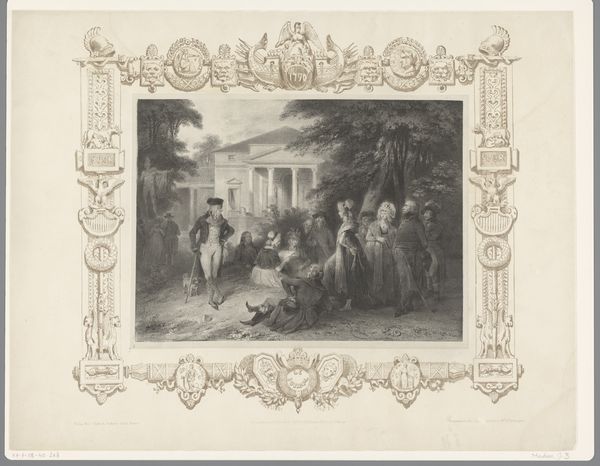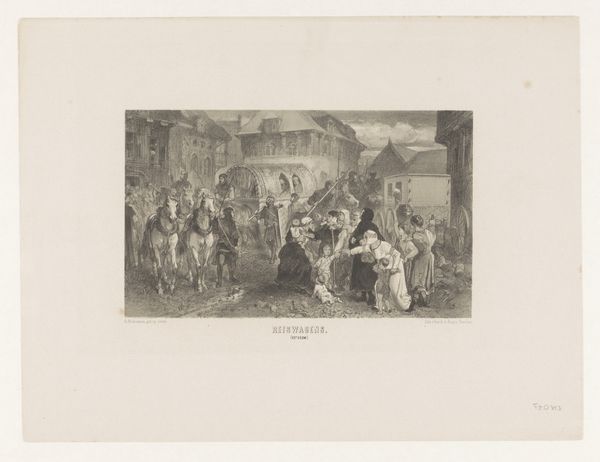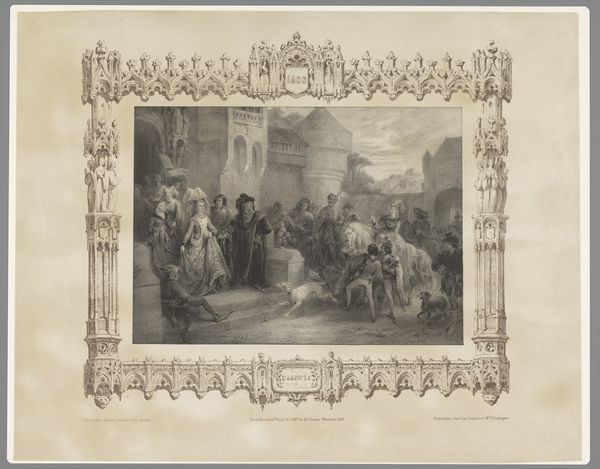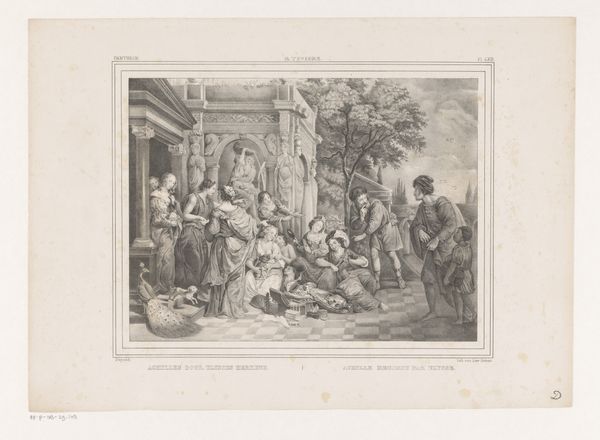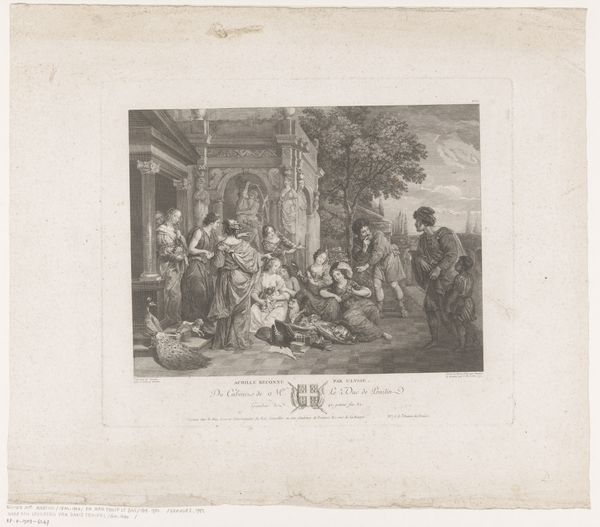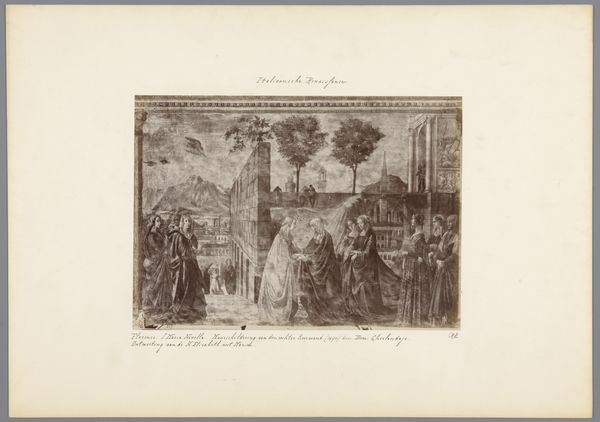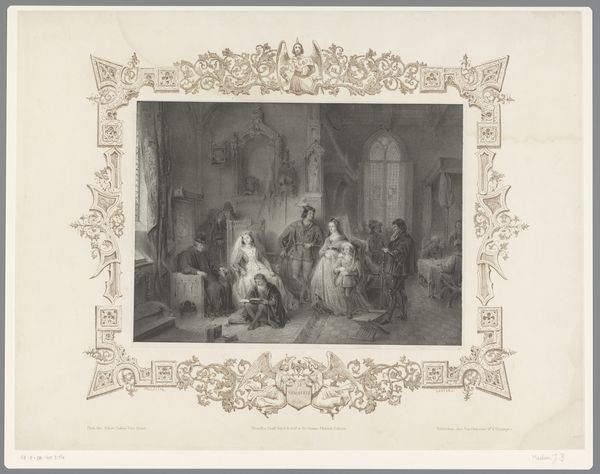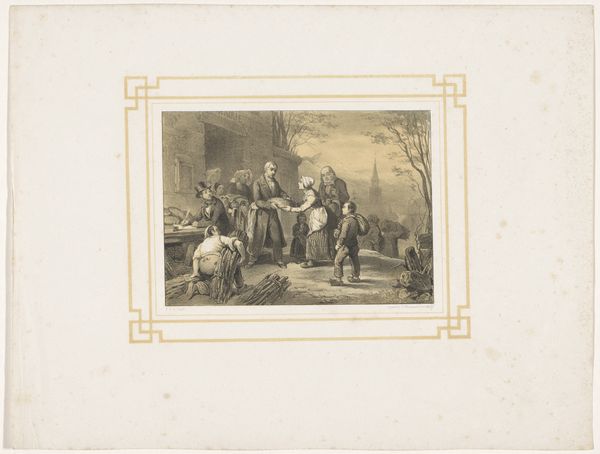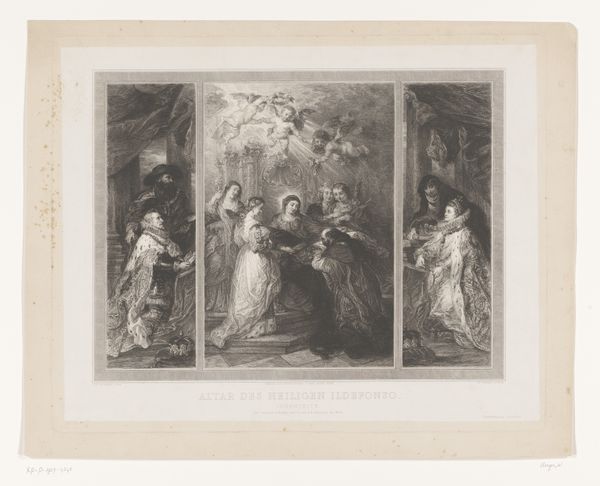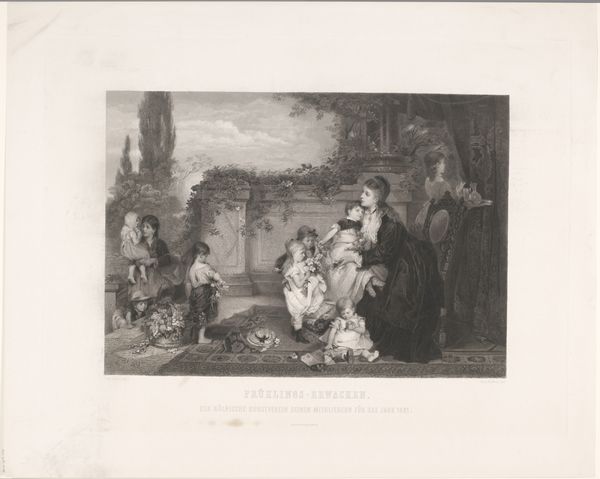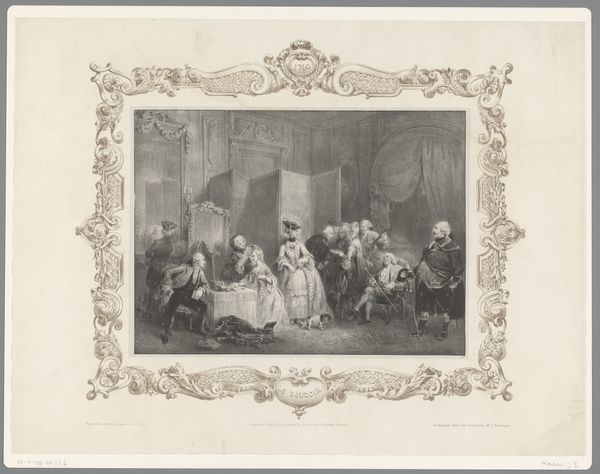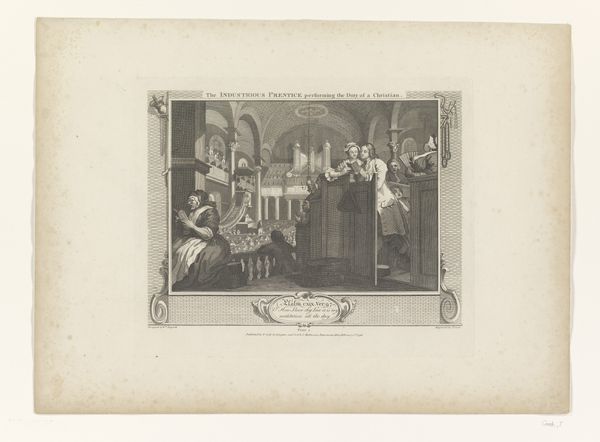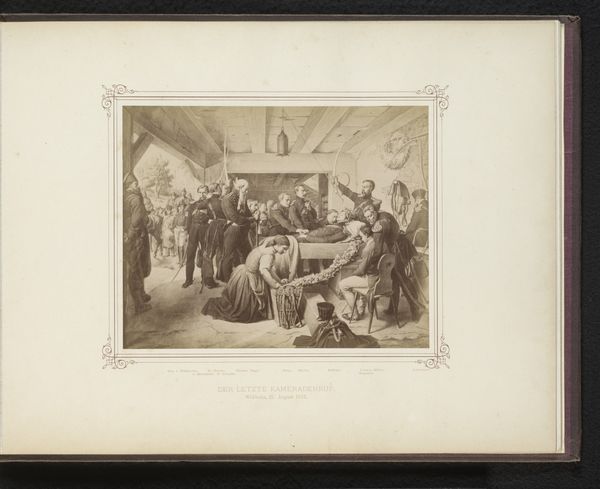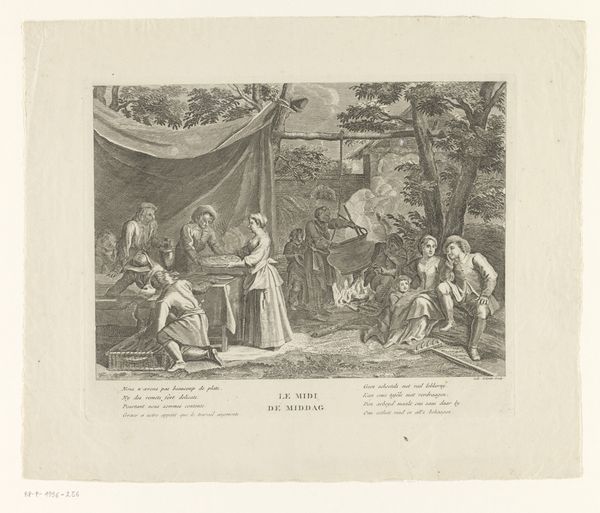
drawing, print, paper, engraving
#
drawing
#
garden
# print
#
landscape
#
paper
#
romanticism
#
genre-painting
#
engraving
Dimensions: height 430 mm, width 551 mm
Copyright: Rijks Museum: Open Domain
Jean-Baptiste Madou's 'Gezelschap gezeten in een tuin bij een kasteel' depicts a gathering of figures in a garden, evoking a sense of leisure and perhaps even courtly love. Note the peacock perched above, its resplendent plumage displayed. The peacock, in Western art, traditionally symbolizes pride, vanity, and, paradoxically, immortality. The symbolism dates back to ancient Greece where the peacock was the emblem of Hera. The bird’s ability to shed its feathers and regrow them connects it to ideas of rebirth and renewal. Consider how this symbol has evolved. In early Christian art, the peacock appears as a symbol of resurrection, its radiant feathers embodying the glory of eternal life. Yet, as time progressed, the peacock also became associated with worldly vanity, its beauty seen as a symbol of superficiality. The presence of the peacock here invites a psychoanalytic interpretation. Could it be that the artist is subtly commenting on the duality of human nature? Perhaps the collective memory of these symbols allows the viewer to engage with the artwork on a deeper, subconscious level, questioning our own vanities and aspirations for immortality. This cyclical progression of symbols reminds us that images evolve, adapt, and resurface, carrying with them the weight of history and collective experience.
Comments
No comments
Be the first to comment and join the conversation on the ultimate creative platform.
